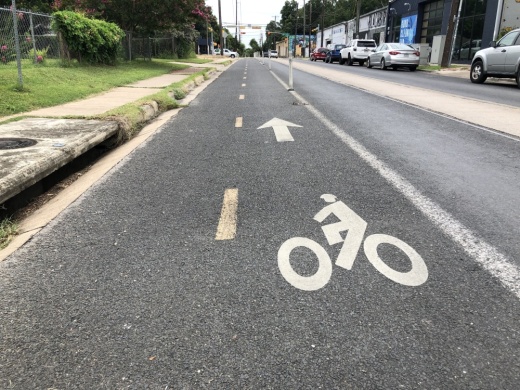The city last updated the three plans in 2014. Since then, voters have approved $306.5 million for urban trails, sidewalk and bikeway programs in 2016, 2018 and 2020.
Centering equity will play a key role in those plans. The city acknowledges previous investments have left communities of color behind in terms of access to transportation, health and safety, city officials said.
Katie Wettick, Austin’s urban trails program manager, said projects such as the 1928 master plan and the original construction of I-35 have created barriers throughout the city, particularly for people traveling east to west. The city plans to apply that historical knowledge when developing its new plans.
“What the equity framework does is it acknowledges the role of discriminatory policies and practices, like we've just been talking about, in creating these racial and geographic disparities in transportation access and also health and safety,” Wettick said. “[We’re] really taking an active approach in engaging folks who aren't normally engaged, and part of that approach is hiring 12 community ambassadors.”
The first public meeting will take place virtually Aug. 11 from 7-8 p.m. According to a press release from the city of Austin, the meeting “will introduce the project and include information on public input opportunities.”
In addition to the first meeting and community ambassador program, the city will host three large public meetings over the next two years as well as small group meetings.
“In order for us to understand what residents of Austin need to get where they want to go, and for these plan updates to be a success, we need to hear from communities across Austin,” Assistant City Manager Gina Fiandaca said in a press release.





